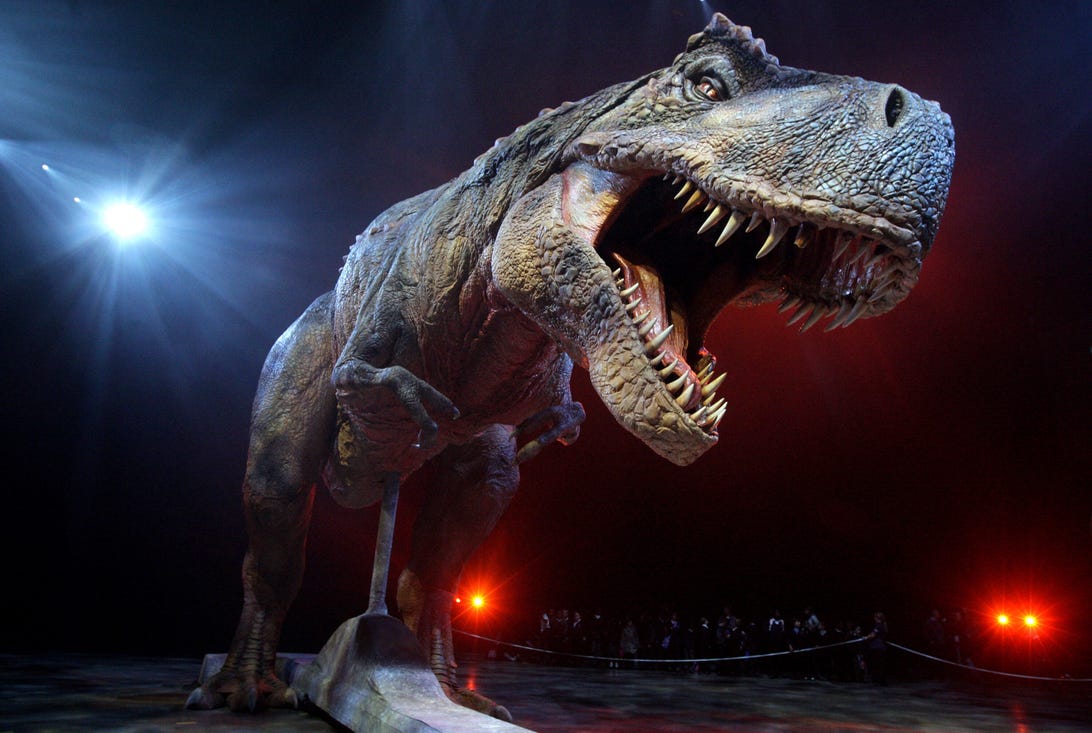
The rock got them.
Oli Scarff/Getty ImagesIf you asked Joe Blow on the street how the dinosaurs became went extinct, he'd mostly likely say an asteroid wiped them out, but the truth is a little more complex than that. By this stage, we're well aware that a massive asteroid around 10 to 15 kilometers wide struck Earth around 66 million years ago. We even know where it hit. The Chicxulub crater, located in the Yucatan peninsula in Mexico is 150 kilometers wide. Pretty difficult to miss.
But many scientists still subscribe to the theory that a massive volcanic range, located in India, was the main driver of the Cretaceous-tertiary Extinction event that killed the dinosaurs. That volcanic range, named the Deccan Traps, is at the center of that debate.
We know lava was spewing from that Deccan Traps during the period in which the dinosaurs went extinct, but we don't know the precise timing of those eruptions, or if the carbon dioxide released into the atmosphere was significant enough to cause the type of global warming consistent with extinction events in the past.
Until now.
Recent research by a multi-institutional team led by scientists from The Graduate Center of the City University of New York, has attempted to measure how much carbon dioxide was released into the atmosphere, hoping to understand the role volcanoes played in the fifth extinction event.
The results? Volcanic eruptions most likely were'nt a significant driver of dinosaur extinction.
"Our team analyzed Deccan Traps CO2 budgets that coincided with the warming event," said Andres Hernandez Nava, a Ph.D. student in The Graduate Center, CUNY's Earth and Environmental Science program, "and we found that carbon outgassing from lava volumes alone couldn't have caused that level of global warming."
The team used lasers and ion beams to measure the carbon dioxide of frozen magma trapped inside Deccan Traps crystals from the end-Cretaceous period and performed modelling of that climate in an attempt to test the impacts of Deccan Traps release on surface temperatures. The data revealed that most likely the Deccan Traps contributed to a temperature increase of around 3 degrees Celsius. Significant, for sure, but most likely not enough to create a fifth extinction event.
In short, as my five-year-old son says when I ask who killed the dinosaurs: "A big rock got them."
Article From & Read More ( Did volcanoes kill the dinosaurs? New research says no - CNET )https://ift.tt/2QGQ4iS
Science
No comments:
Post a Comment